Winter brings deadly coronavirus surge around the world with fears over risky Christmas period
Devastating second and third waves of COVID-19 infections are sweeping the world, with concerns rising for a horror post-Christmas period.
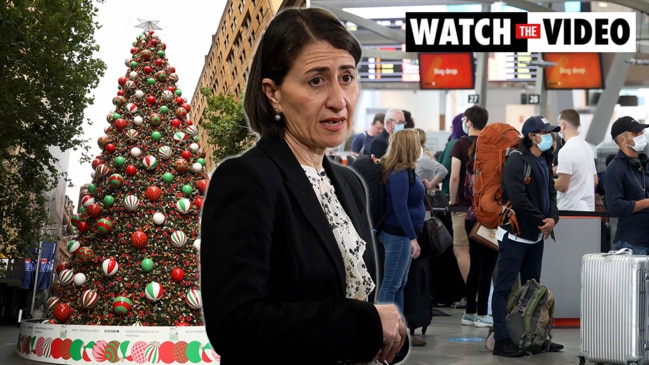
Across the world, countries are dealing with alarming spikes in coronavirus cases as second and third waves of infections hit hard ahead of Christmas.
Countries previously successful in dealing with initial outbreaks of the disease have also not been spared with many grappling to control higher numbers of cases than in March and April.
There are now fears that gatherings over Christmas and New Year will bring devastating results in January and February despite hopes a newly available vaccine will help ease infection rates.
FOLLOW OUR CORONAVIRUS COVERAGE
The United States is continuing to set records for deaths and infections while Europe is also battling a winter surge.
On Thursday, Europe became the first region in the world to pass the milestone of 500,000 coronavirus deaths, according to AFP. Almost 37,000 people died in seven days, the highest weekly toll since the start of the pandemic.
The region also recorded its highest ever number of daily deaths on Tuesday, with 6800 people dying.
The European countries with the most new deaths over the last seven days are Italy (4798 deaths), Russia (3846), Germany (3495), the United Kingdom (2954), Poland (2754) and France (2,713).
Several European countries have returned to lockdowns, curfews and other restrictions amid fears of a post-holiday explosion of cases.
The United Kingdom, Germany, Denmark, France, Turkey and the Netherlands have all tightened restrictions and Spain’s prime minister expressed alarm at rising infection numbers there.
South Korea and Japan are also battling surges in cases after months of keeping the virus contained.
The increase in cases is also impacting Australia with authorities struggling to keep cases from escaping quarantine facilities.
The arrival of winter conditions along with a sense of complacency around social distancing measures have been blamed for the rise in new cases. This combined with the “superspreading” events of Christmas and New Year when large groups of people gather indoors has put authorities on edge.
The World Health Organisation on Wednesday urged Europeans to wear masks while celebrating Christmas and New Year, warning of a “high risk” of a leap in coronavirus cases in early 2021.
“It may feel awkward to wear masks and practise physical distancing when around friends and family, but doing so contributes significantly to ensuring that everyone remains safe,” the health agency said.
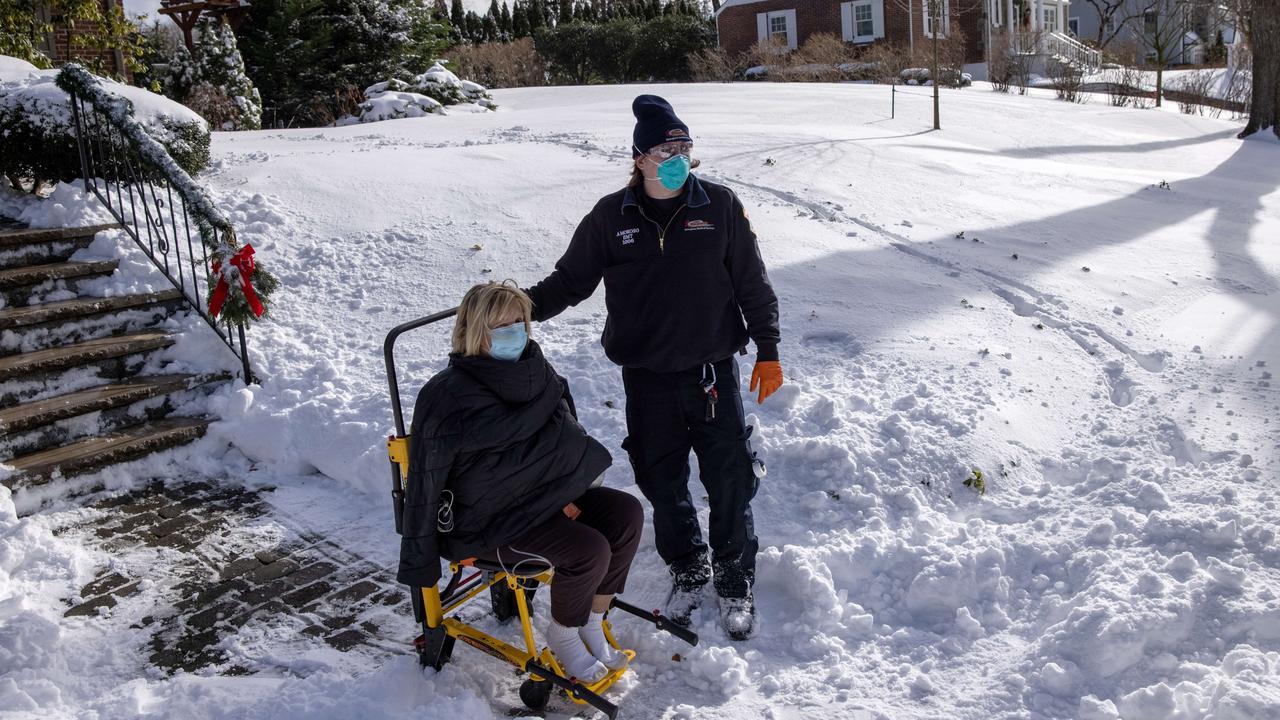
Focus has also turned to a speedy rollout of the Pfizer-BioNTech vaccine, with European leaders pushing for the European Medicines Agency (EMA) to approve it before Christmas.
But health officials in the US have warned its nationwide vaccination campaign launched on Monday will have no effect on the current surge because it will take months before enough people are immunised to make a difference.
Experts say that face masks and social distancing measures must remain in use, especially during the end-of-year holiday period.
“To get to the end of the pandemic, we will need up to 70 per cent of the population vaccinated,” European Commission chief Ursula von der Leyen told members of the European Parliament.
Since the outbreak emerged in China last December, the coronavirus has killed more than 1.6 million people, according to a tally from national authorities and the World Health Organisation, compiled by AFP on Wednesday.
At least 73 million cases have been registered, with about 64 per cent of these considered recovered, however, the actual numbers are expected to be higher as many countries are only testing symptomatic or the most serious cases.
UNITED KINGDOM
British Prime Minister Boris Johnson has been forced to cancel Christmas for many families in London and south-eastern England after a sharp spike in new coronavirus cases that has seen infections rise to more than 27,000 a day.
Residents won’t be able to meet up with other households or travel to other areas of the country until December 30 at least.
It comes after a new strain of the coronavirus that is “up to 70 per cent more transmissible” was discovered.
Earlier, London moved to the highest level of restrictions forcing theatres, pubs and restaurants to close again, and banning households from mixing indoors.
Cases have been doubling every seven days in some areas in the UK with Health Secretary Matt Hancock saying the “sharp rise” in daily cases of COVID-19 and hospital admissions made it “absolutely essential” to act.
The tightened restrictions came despite hopes for a positive impact from the Pfizer-BioNTech vaccine, which has now been delivered to 137,000 people.
British Prime Minister Boris Johnson had previously resisted calls to change Christmas restrictions, during which there was expected to be a five-day travel window with up to three households able to meet indoors.
But spiralling infection rates in London and parts of southeast England have triggered concerns about a further rise in January, similar to those after the US thanksgiving holidays.
Britain has been one of the worst affected countries in the pandemic, registering nearly 65,000 deaths from just under 1.9 million positive cases, according to government figures.
UNITED STATES
It’s been a bleak month for Americans with coronavirus deaths topping 300,000 this week and the number of daily deaths hitting 3000 last week.
There are now more people dying from the coronavirus every day than were killed in the September 11 terrorist attacks, which claimed 2992 lives.
On Friday, the US also set a new daily record of COVID-19 cases with more than 249,000 infections recorded in 24 hours, the Johns Hopkins University virus monitor reported.
Coronavirus infections have increased dramatically over the past month — new daily cases have been recorded at or above the 200,000 mark in 10 of 13 days.
The number of hospitalised COVID patients — 113,000 — is also at its highest level since the beginning of the pandemic in March, according to data from the US Department of Health and Human Services.
California is especially facing a shortage of available intensive care beds with fewer than 100 available Tuesday in a county that is home to 10 million people.
US health authorities have discouraged large indoor gatherings and this message may finally be filtering through.
According to The Washington Post, less than 70 people turned up for an indoor holiday event hosted by America’s top diplomat Mike Pompeo on Tuesday, despite invitations being sent to 900 people.
BRAZIL
Unlike other badly affected countries, Brazil is currently enjoying summer weather but its coronavirus cases show no sign of slowing down.
Records are being broken and Brazil set a new high of 70,574 cases in one day on Wednesday, although officials admit the true number is far higher.
Rio de Janeiro recorded 565 deaths in just two weeks and the city’s annual New Year’s Eve beach bash has now been cancelled and so has the city’s 2021 Carnival event, normally held in late February.
Some 180,000 people have died of COVID-19 in Brazil, which has a population of 212 million. It boasts the world’s second highest death toll after the United States, and virus cases are on the rise.
In the face of the rising infections, Brazil President Jair Bolsonaro, who previously said he would not get vaccinated, did a backflip on Wednesday and backed the national mass coronavirus immunisation campaign.
RELATED: Virus will ‘fight back’ against vaccine
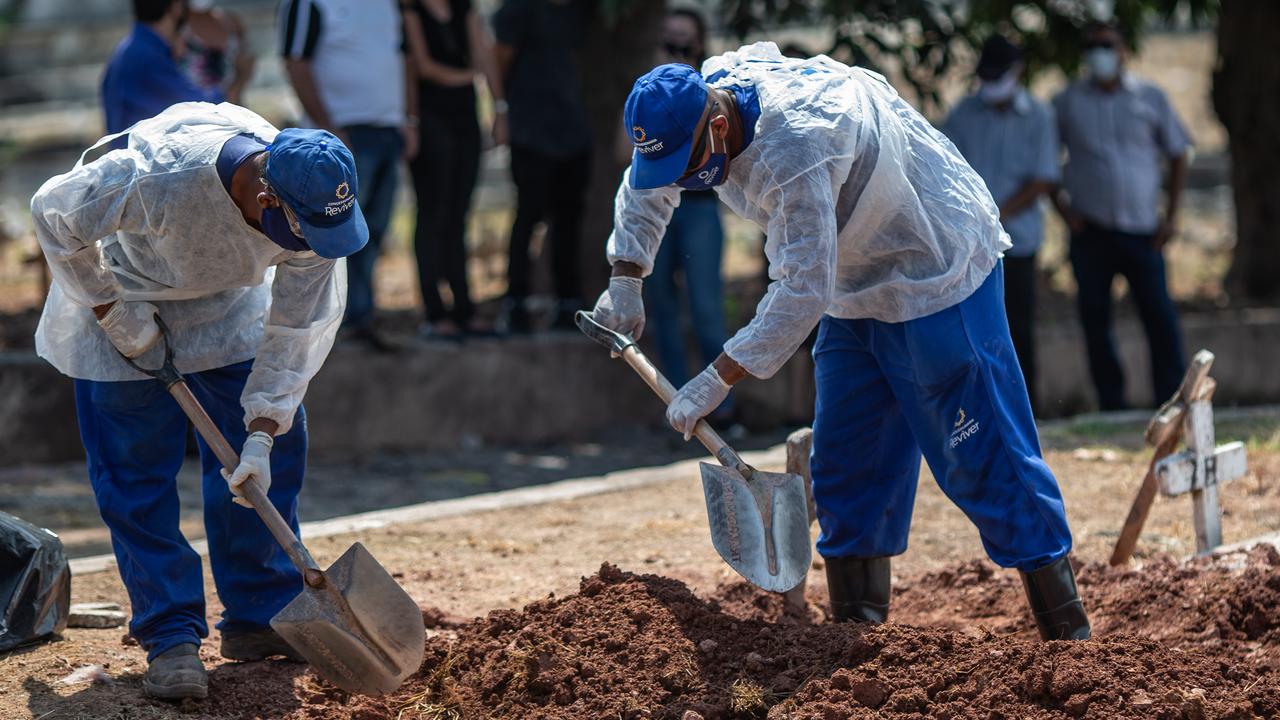
GERMANY
Germany, which dealt with its first wave relatively smoothly, has now had to shut down its famous Christmas markets in the face of the exponential growth of infections.
The country’s daily death toll soared to a record high of 952 on Wednesday fuelling speculation its lockdown could last until Easter.
On Wednesday, new restrictions forced the closure of non-essential shops and schools until at least January 10.
The country’s famed Christmas markets were closed and with the exception of Christmas, just five people are allowed to meet indoors from a maximum of two households.
New Year’s Eve festivities will also be curtailed, with the sale of fireworks and gatherings banned.
Germany was previously in partial lockdown, with schools and stores remaining open.
In recent months it has struggled to contain a surge in COVID-19 cases, with the Robert Koch Institute (RKI) disease control centre reporting 27,728 new cases on Wednesday, close to the record of 30,000 infections recorded the week before.
Its coronavirus death toll has doubled since the end of the first wave in spring — more than 23,000 people have now died.
Health authorities said Wednesday that vaccinations could begin on December 27 but the chairman of the World Medical Association, German doctor Frank Ulrich Montgomery, expected containment measures to continue at least until Easter.
“Even if vaccinations start earlier than expected, the effect will only be gradual,” he told the Funke media group.
RELATED: Young Aussies probably won’t be able to travel next year
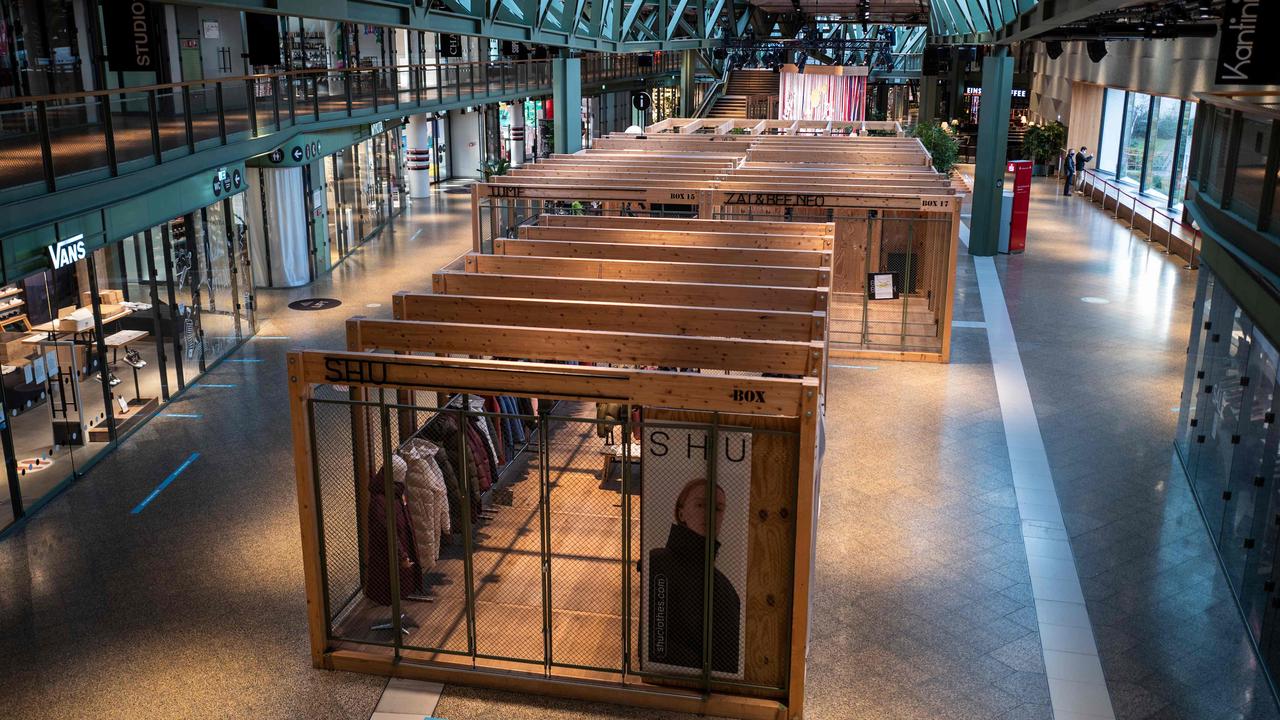
DENMARK
There are fears January and February could become the worst months of the pandemic in Denmark after health authorities reported almost 3700 new coronavirus cases and 14 deaths on Wednesday.
In response Denmark’s Prime Minister Mette Frederiksen announced the country would shut shopping centres this week with further activities restricted from December 21. All non-essential shops will be closed from Friday, December 25 until January 3.
Earlier this week, Denmark had already ordered the closure of bars and restaurants, schools, sporting facilities and cultural centres.
Denmark now looks set to top 120,000 total cases and 1000 deaths.
Ms Frederiksen said authorities fear January and February could become the worst months of the pandemic, and urged Danes to celebrate Christmas with small gatherings only.
NETHERLANDS
Until recently the Netherlands had some of the most lax virus measures in Europe but has struggled badly with the second and third wave of the disease.
The number of infections in the Netherlands is nearing 10,000 a day while the overall death toll during the pandemic passed 10,000 last weekend.
The Netherlands began its strictest coronavirus lockdown yet on Tuesday, with schools and non-essential shops shutting for five weeks over the Christmas period.
However, cannabis “coffee shops” and restaurants can both stay open for takeaway service.
People have been advised to stay at home and can have a maximum of two guests a day, except for Christmas Day when they may have three.
The Dutch went into an “intelligent lockdown” in March during which schools shut down but shops stayed open, meaning that the new measures are the toughest since the start of the pandemic.
“We need to bite this very sour apple before things get better. And yes they will get better,” Prime Minister Mark Rutte said.
SWEDEN
Sweden, which has controversially relied on mostly non-compulsory measures to control the spread of coronavirus, has struggled to contain an unexpectedly strong second coronavirus wave.
Lars Falk, a doctor at an intensive care unit at the Karolinska Hospital in Stockholm told AFP the second wave had hit much harder than they expected.
“We got three different scenarios from the Public Health Agency this summer. We prepared for the worst, and it turned out twice as bad,” Dr Falk said.
RELATED: Swedish king says country ‘failed’ in COVID-19 response
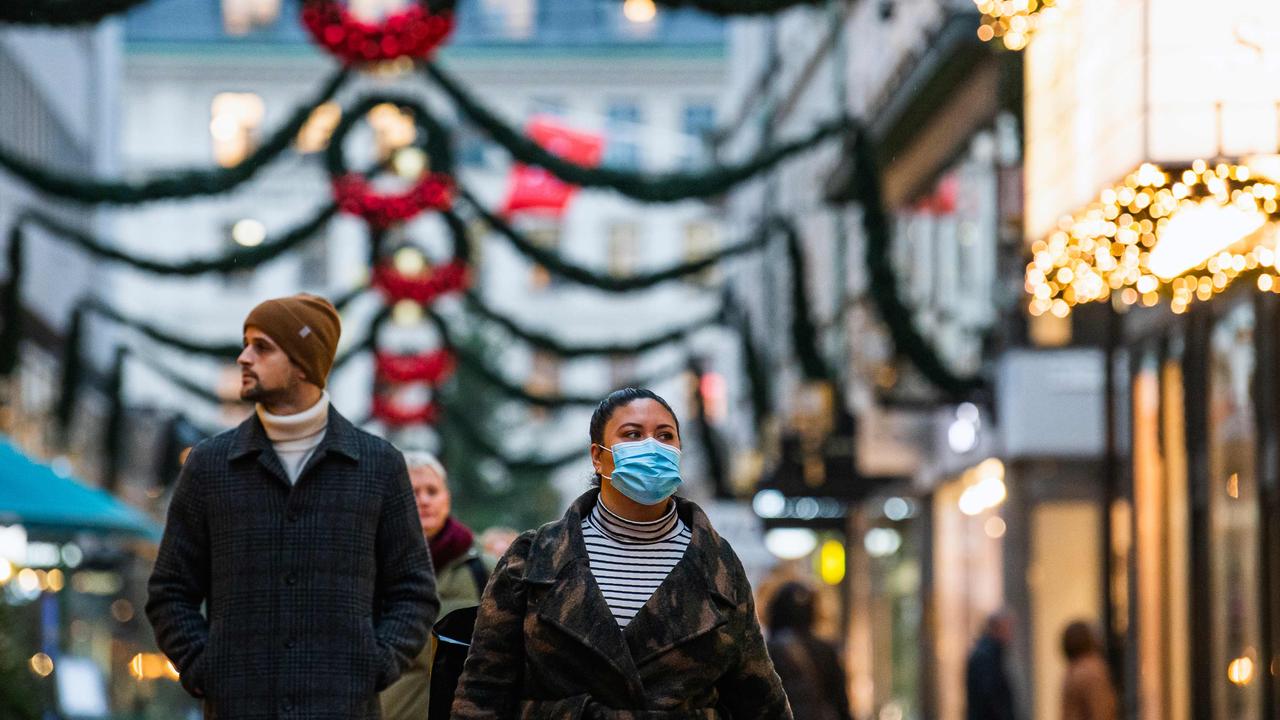
On Thursday, Sweden’s National Board of Health and Welfare said the number of people receiving hospital care for COVID-19 was now more than 2,500, topping the previous peak in late April.
The total number of deaths associated with COVID-19 in the country of some 10.3 million reached 7802 on Wednesday, with more than 500 people in the last week and over 1800 since the beginning of November.
As cases have risen, authorities have urged people to limit social interactions to those in their household or a very small circle of friends. On November 24 a ban on public gatherings of more than eight people came into force, lowering the number from 50.
Contrary to media reports, the Scandinavian nation never targeted so-called herd immunity as part of its official strategy.
But health officials did argue that the high level of spread in the spring should weaken any second wave. That seemed to be borne out for a while, as the second wave hit later and deaths remained low in October.
The country’s response has been constrained in part by legislation, including a guarantee on freedom of movement enshrined in the constitution.
But the government is preparing a temporary, one-year “pandemic law” it aims to have in place by March 2021, which will empower ministers to limit the number of people in public places and regulate businesses and services by restricting opening hours or even shutting them down.
SOUTH KOREA
South Korea had previously been held up as a model of how to combat the pandemic, with the public largely following social distancing and other rules but a spike in cases has seen President Moon Jae-in apologise on Facebook for failing to contain a third wave of infections.
On Sunday a record 1030 cases was reported, the second day of record infections.
The day before, the President called the situation “very grave” after authorities reported 950 new infections, the largest daily increase since the start of the pandemic.
The weekend numbers followed several days in which authorities reported figures ranging from about 500 to 600.
South Korea’s spike came despite the government’s tightening of social distancing rules in the capital area earlier this week. This includes a ban on gatherings of more than 50 people and spectators at sports events. Cafes can serve only takeaways, while restaurants must close by 9pm, with only deliveries permitted afterwards.
South Korea endured one of the worst early COVID-19 outbreaks outside mainland China, but brought it broadly under control with its “trace, test and treat” approach.
It has never imposed the kind of lockdowns ordered in much of Europe and other parts of the world but is reportedly now considering this.
RELATED: America’s coronavirus death toll is much worse than the flu
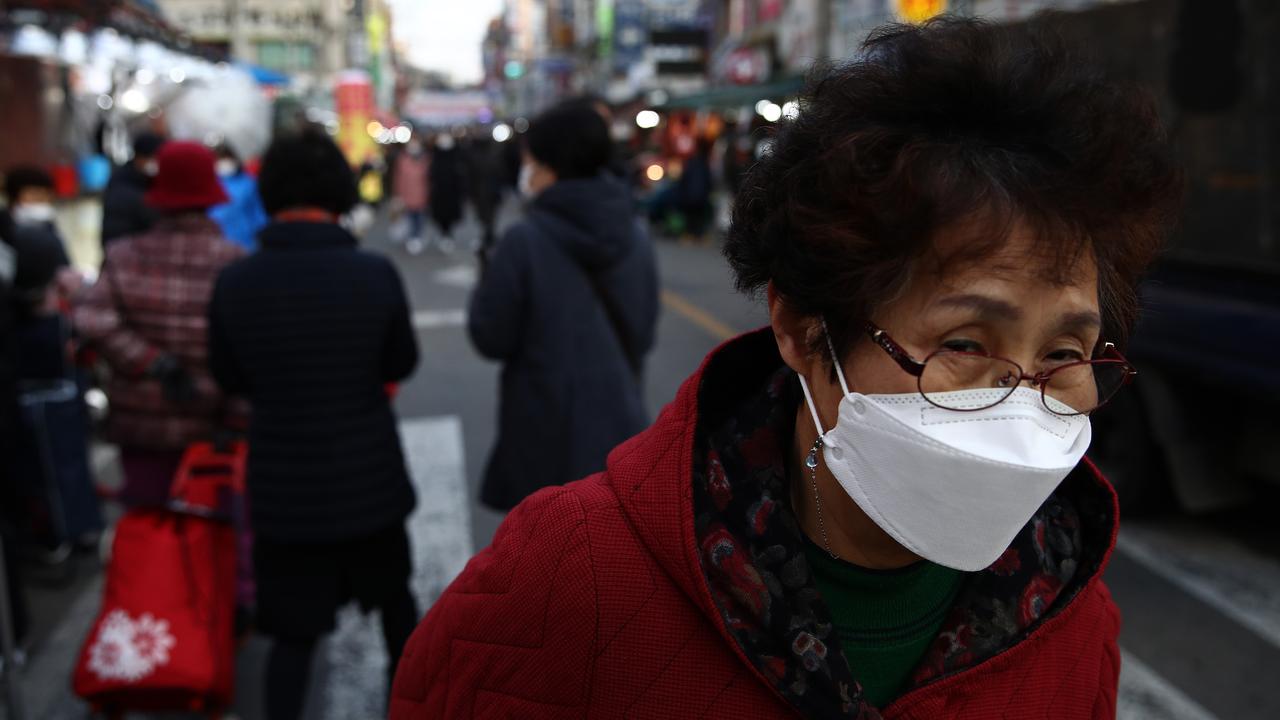
JAPAN
Another success story, Japan has seen a relatively small COVID-19 outbreak overall, but has been battling record numbers of new cases in recent weeks.
It reported a record high of 2999 cases on Wednesday and 42 deaths, according to Johns Hopkins University. In just the past month there have been 68,000 cases and 740 deaths, making up around half of the total
Previously Japan did not impose a strict lockdown and instead residents were strongly advised to use their own judgment and steer clear of situations described as “mitsu” — meaning dense, crowded and close — to limit the spread of the respiratory disease.
The country still seems unlikely to go down the lockdown path but Prime Minister Yoshihide Suga on Monday suspended a controversial domestic tourism campaign that provided subsidies for travel to help struggling businesses around the country. He has also urged residents to reconsider New Year travel plans.
Despite the rise in cases, the country is expected to push ahead with a socially distanced torch relay on March 25 ahead of the Olympic Games in Tokyo next year. This will see around 10,000 runners carry the torch around Japan’s 47 prefectures before arriving in Tokyo for the July 23 opening ceremony.



